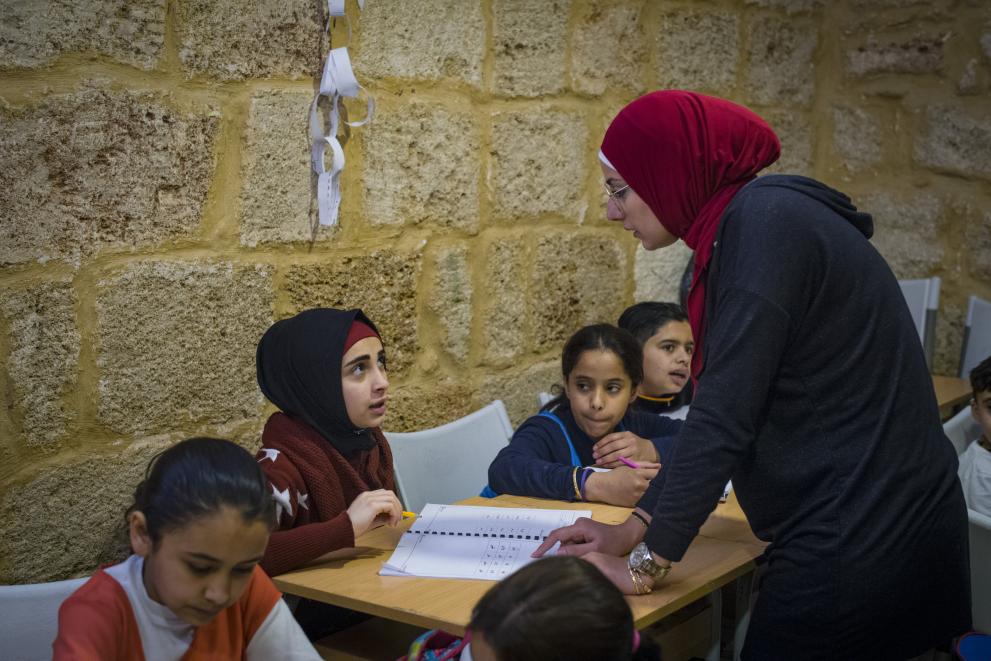
They are not used to being around kids from different families, they are not used to having friends outside of their homes
Ghina Ottoman is a teacher at the Al-Nejmeh centre in Tripoli and she helps Lebanese and Syrian children between the age of 10 and 14 who have been school drop-outs for at least two years. “We teach them Arabic and math, we have entertainment activities,” she explains. The main challenges she faces every day are mainly linked to the living conditions of her students: some of them are subject to abuse and don’t feel safe, which causes them to be hostile to each other. “They will get used to each other and help one another. This project is helping them socially even more than it’s helping their education. It affects them greatly, especially when they are blending into society,” she says, referring to the Back to the Future programme.
Many Syrian and Lebanese children from lower-income regions like the one where the Al-Nejmeh centre is located drop out of school more easily: their families cannot afford school fees or need their children’s help in providing for the household. Some parents are more interested in education for their children than others: “it doesn’t have to do with them being Lebanese or Syrian, it depends on the parents’ culture and beliefs,” she continues.
Ghina is happy because through her work she feels she is making a difference for these children, especially by providing them with the psychological support they need. Thanks to the activities offered through this project implemented by AVSI, Terre des Hommes and War Child Holland, Ghina’s students create strong friendships amongst each other and feel like they are members of a big family, regardless of their nationality or cultural beliefs.
With the support of the EU Trust Fund, Back to the Future has been giving almost 100,000 Syrian refugee and local children in Jordan and Lebanon access to informal education and protection, and a better chance to, one day, go back to the official education system.
